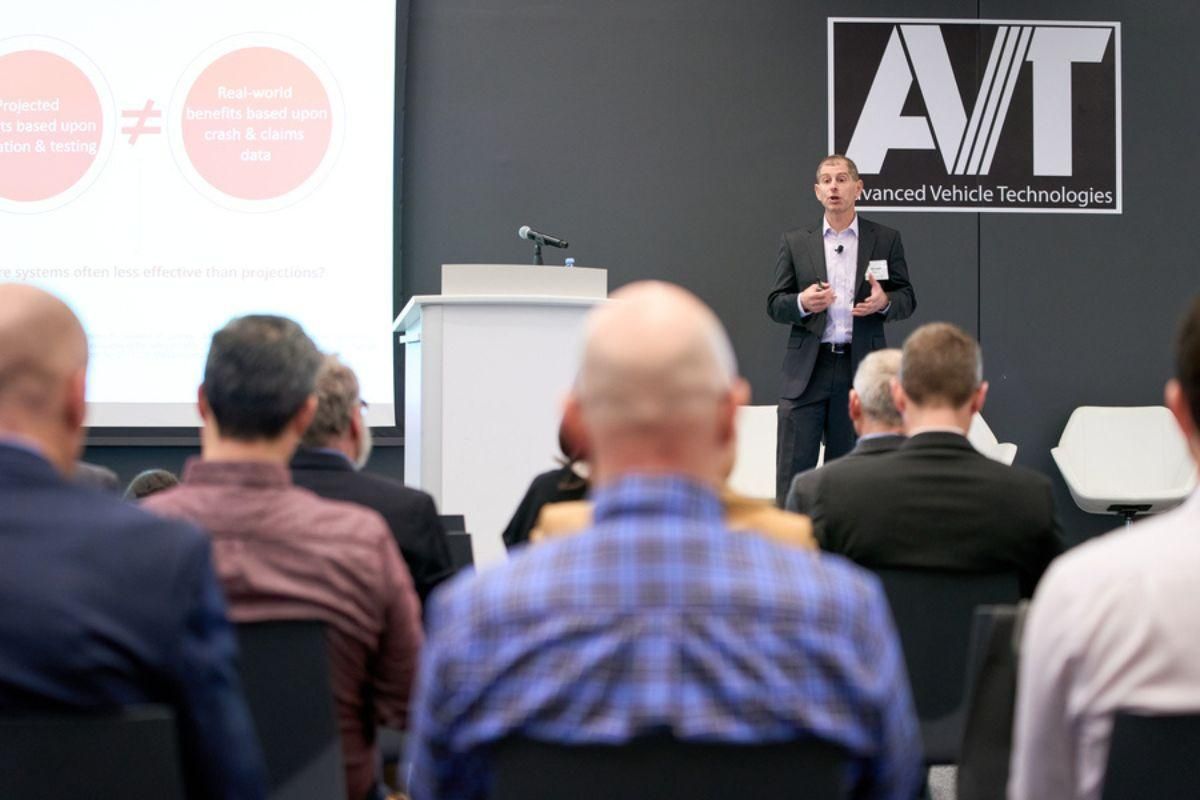Marking its 10-year anniversary, MIT’s Advanced Vehicle Technology (AVT) Consortium recently gathered leading voices from government, academia and industry to discuss the urgent need for a systemwide shift in how vehicle technology is developed, regulated and maintained, with a central emphasis on safety, collaboration, and consumer trust.
Founded in 2014 by MIT’s AgeLab and housed within the Center for Transportation and Logistics, the AVT Consortium has grown into a global research partnership of more than 25 organizations. Over the past decade, it has generated hundreds of terabytes of real-world driving data, supported strategic and policy initiatives, and helped shape public and private sector understanding of how drivers interact with increasingly sophisticated vehicle technologies.
Bryan Reimer, AVT’s founder and co-director, opened the event by highlighting the challenges ahead: persistent distracted driving, consumer skepticism toward automation, and growing concern over the transparency and safety of driver-assist features.
“The key question,” he noted, “is how the industry will respond to these trust gaps while advancing innovation.”
In a keynote exchange, John Bozzella, president and CEO of the Alliance for Automotive Innovation, and Mark Rosekind, former NHTSA administrator and Zoox executive, emphasized the need for regulators and industry to align safety policy with technological advancement.
“Safety delayed is safety denied,” Rosekind stated, pushing for a shift from piecemeal fixes to systemic strategy. Bozzella pointed to voluntary industry action on automatic emergency braking as a model for future collaboration.
Drawing parallels to aviation, FAA advisor Kathy Abbott said safety must be built into industry culture, not retrofitted. She warned that unlike aviation, which thrives on standardization and data sharing, the automotive sector remains fragmented and reactive.
Panelists also addressed legal, technical and consumer risks associated with Level 3 automation — systems that expect human drivers to take over when autonomous technology encounters issues.
“Level 3 systems are an engineer’s dream and a plaintiff attorney’s next yacht,” Reimer warned in a quote cited by Automotive News’ Pete Bigelow.
From the legal to the practical, a panel featuring Thatcham Research, Caliber Collision and Nelson Law spotlighted the mounting challenges in collision repair. The panel cited rising costs, labor shortages and unclear manufacturer guidance as barriers to safe and effective repairs. Until Level 2 systems function reliably and affordably, panelists agreed, Level 3 autonomy is premature and potentially dangerous.
The future of AI in vehicles also took center stage. Mauricio Muñoz of AI Sweden argued that automotive innovation must be rooted in domain-specific research, not general AI hype.
“Excitement alone isn’t enough,” he said. “Automotive AI must solve unique, real-world challenges — and that requires collaboration, not just compute power.”
Honda’s Ryan Harty used the platform to highlight the automaker’s sustainability and safety goals, including its target to achieve 100% electrification by 2040 and eliminate traffic fatalities.
“What consumers buy dictates what manufacturers build,” Harty noted, emphasizing the need to align technology and environmental strategies with customer behavior.
A final panel with leaders from ITS America, Qualcomm, Audi/VW Group and Aptiv reinforced the need for proactive safety systems, infrastructure modernization and public engagement. Despite high-profile features like school bus detection being available, panelists noted these are underused due to cost concerns and consumer skepticism.
Reimer closed the event by calling for a renewed focus on consumer affordability, usability and safety.
“Success will come through partnerships,” he said, advocating for global collaboration and transparency across the mobility ecosystem. “We must rebuild trust in vehicle technology and reshape how innovation serves the public good.”













